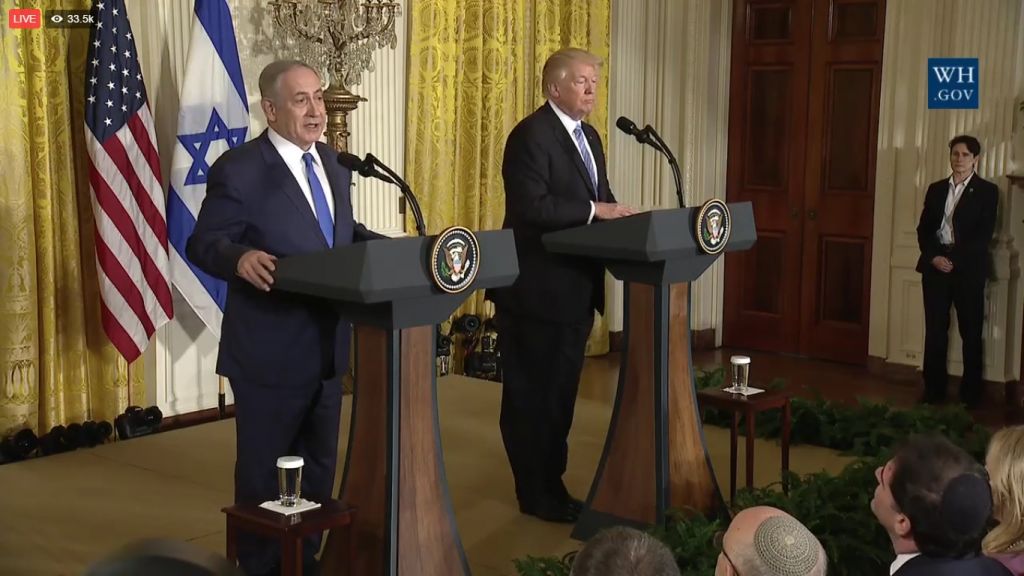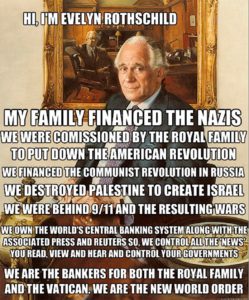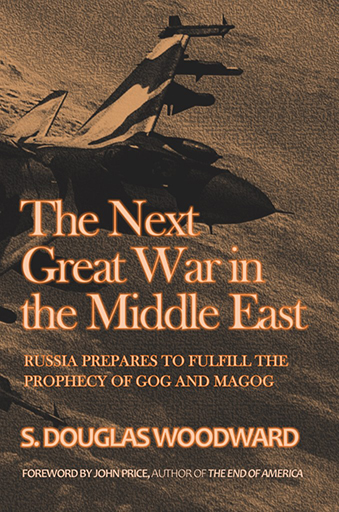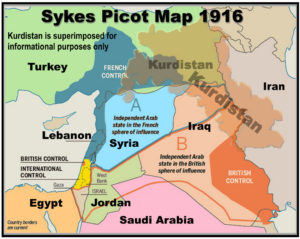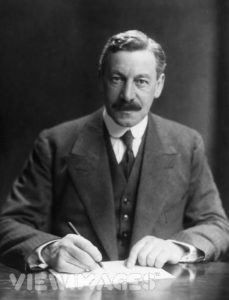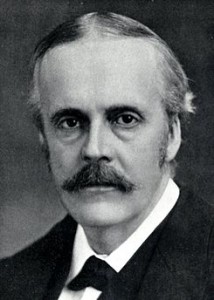Optimism for a Renewed Alliance While Suspicion Festers
Today we hear increasingly heated arguments against Zionism. For Christians who care about the state of Israel and its people, its time to perk up our ears and pay attention.
Many contend that Zionism drives the agenda of the Western World and has thoroughly infected the policies of the United States. Even conservative radio personalities are speaking against the nation state of Israel more frequently and casting Zionism as the ultimate monster in leading the world down the primrose path toward an elite-dominated new world order.
Trump and Netanyahu Meet to Repair the “Unbreakable Alliance”
Despite the frustration President Obama and Prime Minister Benjamin Netanyahu experienced in their relationship, President Trump has vowed that there be “no sunlight” between the two allies (we should act in concert and be “as one” as it pertains to common concerns). The estrangement between Israel and the U.S. occurring during the Obama years appears to have come to a close. Even the vaunted “two-state solution” that has been the cornerstone of the Western nations’ solution for bringing peace to the region, appears to be on the block as I write this post.
So, is this good news or bad for the United States? Will this lead to Israeli aggression in taking more land? Will the United States be roped into a war with Iran as some suggest?
The Israeli government’s plan to construct 4,000 new homes in Judea (the West Bank), has once again given rise to a slate of allegations that Israel is hell-bent on destroying the Palestinian people and will act even more “imperialistically” in the months ahead. Whether these charges be true or not (remember… what we hear in the mainstream media must be taken with a grain of salt), it is important for Christians who feel a kinship with Israel (for various reasons) to better understand the history of Zionism. At the forefront of the conspiratorial view of history is one family: the Rothschilds. It isn’t a secret that members of this family were instrumental in the Zionist movement and played no small part in the founding of the Jewish state in the land of Palestine. However, it is my view that we must distinguish what Zionism once was with what Zionism may be today. This post will focus on the historical importance of Zionism. In the future, I will dig into what modern Zionism has become and whether it has “shanghaied” the United States’ foreign policy and its military industrial complex to be little more than an extension of the Israeli government.
The Family at the Forefront
At the forefront of the conspiratorial view of history is one family: the Rothschilds. It isn’t a secret that members of this family were instrumental in the Zionist movement and played no small part in the founding of the Jewish state in the land of Palestine. However, it is my view that we must weigh conspiratorial notions much less when assessing the place of the Rothschilds and the true intentions of the famous Balfour Declaration when it was created in 1917.
The Rothschilds: at the Center of Global Evil?
In other words, the issue of Zionism today, in my view, should be separated from the history of how Israel was formed and what the aspirations were initially for all the parties involved. Clearly, as the 16-minute video shared below from the Balfour 100 Project illustrates, the Rothschilds were vital in making Israel a nation. However, the conspiracy theories surrounding the Rothschilds and their globally dominate central banking monopoly should be distinguished from the origination of the nation of Israel. Thus, it should be admitted that both of these facts are true: the Rothschilds comprise the most powerful banking “cartel” in the world; moreover, the Rothschilds were instrumental in the founding of Israel. The Rothschilds (and the Rockefellers) are indeed at the center of the drive toward one-world government. This is hardly a revelation for those who study the history of Western geopolitics.
But was the creation of Israel central to a sinister plan to control the world and drive it toward globalism? Based upon the history of what we can learn from the actions of the Rothschilds involved in the formation of Israel, and the geopolitical issues in play when World War I was coming to close, “a sinister purpose” — a Zionist conspiracy if you will — to have Israel serve as the locus for a Jewish global conspiracy is more than a stretch. The facts don’t support it. And the suspicion most evangelicals have about globalism, the Rothschilds, central banking, and the new world order should not indict Zionism — at least not as it was originally conceived.
However, it is a separate question as to the power of Israel today in its influence on the United States, its intention to secure stability within and without its borders, and whether Zionism is indeed, as some popular alternative radio programs proclaim, a dastardly destroyer of the Palestinian people. The warning I’m sounding here is this: evangelicals who have an affinity for alternative news sources and Internet “talk shows”, are hearing and will continue to hear an increasing level of acrimony directed toward Zionism as the bogeyman behind globalism. No doubt the power players in and beyond the government of Israel as well as the so-called Deep State in the U.S. have a plan for where Israel fits in their carefully laid plans. But Christians who love Israel should pay careful attention to what is being said. Israel’s critics will increase and grow more hostile. Discernment will become more important to analyze the policies enacted by both Israel and the U.S. in the Middle East.
THE NEXT GREAT WAR IN THE MIDDLE EAST
Behind the criticism and allegations toward Zionism lurks a genuine anti-Semitism. Despite the denials of anti-Semitism that public figures may express, seemingly conveying that they “love Jews but hate Israel”, the outcome of their animosity toward Zionism will be detrimental to both Jews individually and Israel corporately. Unwittingly, the world is moving toward complete condemnation of Israel and the spirit of antichrist that seeks to destroy the historical people of God.
If evangelicals are not more educated about the beginnings of Zionism and its real agenda in our day, we will be dragged into an “ecumenical sanction” against Jewish nationalism, led by the Pope of Rome that will bleed into mistrust and eventually gross mistreatment of the Jewish people. The outbreak of terrorism targeting Jews in Europe during 2015 and 2016 is the first wave of what unfortunately will become common around the globe according to Bible prophecy.
To provide this historical perspective, I’m sharing here a video that provides a factual and believable account from the mouth of the head of the Rothschilds as to the role they played in Israel’s founding. Secondly, I’m providing an appendix that appears in my book, THE NEXT GREAT WAR IN THE MIDDLE EAST. It tells the story of the early history of Zionism from a geopolitical perspective and how the various agendas of the countries involved in World War I shaped the formation and governance of Israel in the first decade after the Balfour Declaration. Both of these accounts are enlightening, and surprising, to say the least. Please pay attention, learn the facts, and enjoy. How we align with Israel and our support for the Jewish people will be well served if you do.
First: The Interview with Rothschilds
Second: The Climax of Colonialism and Roots of Jihad
“A lot of the problems we have to deal with now, I have to deal with now, are a consequence of our colonial past… The Balfour declaration and the contradictory assurances which were being given to Palestinians in private at the same time as they were being given to the Israelis—again, an interesting history for us but not an entirely honourable one.”
Former British Secretary, Jack Straw (2002).
Roots of the Arab-Israeli Conflict
Almost exactly 100 years ago (May 1916), a process began which would conclude with the creation of the modern state of Israel – and in the process generate non-stop worldwide controversy from that moment forward. Indeed, the present-day crisis in Syria and Iraq between ISIS (aka ISIL), the United States, and the governments of Iraq and Syria links to this treaty signed a century ago.
The event was the inking of the Sykes-Picot Agreement (May 16, 1916).
The Sykes-Picot Agreement of 1916 Shaped the Modern Middle East
This secret agreement focused on settling how the French, British, and Russians would divvy up the Ottoman Empire post-World War I should the “entente” prevail. However, because this agreement was made with the Czarist government of Russia (the treaty being concluded before the Communist Revolution of 1917 when that government was ousted), the terms of what Russia was to receive would be revoked as Lenin and Trotsky took control.
How relevant is Sykes-Picot at the present moment? The leader of ISIS, Abu Bakr Al-Baghdadi, vowed in July 2014 at Mosul’s Great Mosque of al-Nuri “this blessed advance will not stop until we hit the last nail in the coffin of the Sykes–Picot conspiracy.” [1] While this brief narrative hardly comprises a defense for ISIS, it does underscore the Arab world rightly believes the British and the French betrayed it long ago and their present status owes in part to the colonial miscalculations of London and Paris.
This point, however, remains lost in the clamor (sometimes violently so) against Zionism. ISIS and radical Islam blames Jewish Zionism much more than the British for the structure of the Middle East as it stands today in which Israel exists and the Palestinians remain a people without a country. The Islamists assume Zionism was at the center of British and French interests. The facts argue their motives were mostly power plays.
Indeed, a close look at the confusing series of events from 1915 to 1922 shows a different reality than what is advocated by the “Palestinian argument.”
In effect, the Middle East of today was structured by British geopolitical maneuvers in order to protect its empire. Britain often acted unilaterally without French counsel, without American advice, and without regard to promises made to the Arab leaders at that time. Furthermore, in contrast to what we commonly hear today, Zionism was much less influential in arriving at the overall structure of the Middle East. [Essentially, it is “overrated” in this regard.]
Finally, British actions resulted from secret communiqués and were enacted without consensus among British leadership. Demonstrated all too well in this historical series of events is the old adage: “The tangled web we weave when we practice to deceive.”
Wikipedia supplies a succinct description of the Sykes-Picot Agreement:
The agreement effectively divided the Arab provinces of the Ottoman Empire outside the Arabian Peninsula into areas of future British and French control or influence. The terms were negotiated by the French diplomat François Georges-Picot and Briton Sir Mark Sykes. The Russian Tsarist government was a minor party to the Sykes–Picot agreement, and when, following the Russian Revolution of October 1917, the Bolsheviks exposed the agreement, “the British were embarrassed, the Arabs dismayed and the Turks delighted.” [2]
Abu-Bakr-al-Baghdadi, Leader of ISIS
Sykes-Picot actually was a renunciation of an earlier treaty (Règlement Organique) signed by the Ottoman Empire (the Turks) along with the British, French, Russians, and Austrians in 1860 (and confirmed again in 1864). Importantly, it conflicted with a series of correspondences beginning on July 14, 1915 and concluding in January 30, 1916, between the British High Commissioner in Egypt, Henry McMahon, and the Sharif of Mecca (the most distinguished leader of the Arab world at that time) through which the British encouraged the Arabs to move ahead with their existing plan to revolt against the Ottoman Empire. [3]
The British (supposing that their Commissioner did not act on his own initiative), provided this clandestine piece of encouragement to put pressure on the Turks. As mentioned above, the correspondence not only conflicted with the agreements from 50 years prior, it also sidestepped the French, conflicted with the Sykes-Picot plan, and contradicted the later Balfour Declaration of 1917. These secret letters, along with the de facto renunciation of the 1860 agreement with the Ottoman Empire, increased the geopolitical inconsistency of the British. Moreover, it proved a prime example of commitments broken by the British (and indirectly their French ally) to the Arab Emirs who had sought independence from the Turks for an indeterminable number of years. Clearly, at a minimum, there was a lack of coordination within His Majesty’s Government and this uncoordinated effort that fueled the Arab-Israeli conflict even before 1920.
Zionism and its Influence on the Sykes-Picot Treaty
Zionism (founded by Theodore Herzl in the late nineteenth century) was known disparagingly as “the Jewish problem” by the British and French. This movement would endure a multitude of political machinations leading to a series of Treaties and Agreements from 1916 with Sykes-Picot until the League of Nations Mandates in 1922. It would, however, finally yield the formation of a Jewish homeland in Palestine in 1948.
After Herzl’s death in 1904, Chaim Weizmann was the most notable public figure driving Zionism – during the period leading up to World War I – and he tirelessly campaigned for the cause throughout the next four decades. (Weizmann eventually would become the first president of Israel in 1949). But it was a British Cabinet member, the lesser-known Herbert Samuel, who would pave the path for the creation of an Israeli homeland.
Sir Herbert Samuel – First Jewish Member of the British Cabinet, First Governor of Palestine after Balfour Declaration
Working behind the scenes, Samuel (the very first Jewish member of the British Cabinet) would engage his fellow Cabinet members arguing for the creation of a Jewish homeland. His paper, The Future of Palestine, [4] made an important contribution (and comprises a key document to read even today) that delivered the argument for why Britain would be well-served to support Jewish aspirations. On February 27, 1916, Samuel personally delivered a plan to Sykes via a memorandum Sykes committed to memory and then destroyed. Later Sykes would make the following comments:
By excluding Hebron and the East of the Jordan there is less to discuss with the Moslems, as the Mosque of Omar [the easily recognized golden domed sanctuary in Jerusalem] then becomes the only matter of vital importance to discuss with them and further does away with any contact with the Bedouins, who never cross the river except on business. I imagine that the principal object of Zionism is the realization of the ideal of an existing centre of nationality rather than boundaries or extent of territory. [5]
Today, the issue of Israel’s boundaries stands right at the forefront of global geopolitical affairs. How interesting that borders were not well defined by any of the aforementioned treaties. From a whitepaper written by Winston Churchill in 1922, we learn that boundaries were not particularly important in the early stages—Samuel had not demanded them. Israel was to be a “Jewish Center” for inspiration to the Jews globally—not a nation state.
According to another Wikipedia article on Churchill’s white paper:
Contrary to popular belief, the borders of Palestine were not defined in the texts of the Balfour Declaration of 1917, The San Remo conference, The Treaty of Sèvres, the Treaty of Lausanne, or even by the British Mandate for Palestine. The preamble of the Mandate read:
The Council of the League of Nations:
Whereas the Principal Allied Powers have agreed, for the purpose of giving effect to the provisions of Article 22 of the Covenant of the League of Nations, to entrust to a Mandatory selected by the said Powers the administration of the territory of Palestine, which formerly belonged to the Turkish Empire, within such boundaries as may be fixed by them… [6]
The Balfour Declaration so often cited by evangelicals who support Israel’s right to exist, was accompanied by a memorandum from Lord Balfour refuting the Sykes-Picot Treaty (note: this was penned within one year of the Sykes-Picot signing) and other British or French assurances both before and after providing for Arab independence. Instead, Balfour stated bluntly that the Allies were committed to Zionism. [7] As events would soon demonstrate, his bold statement was out of order and in contradiction to many other commitments made by the British and the French.
Trying to Make Things Right
LORD ARTHUR BALFOUR
Indeed, the awareness of Balfour’s position created another political stir that required some considerable “walking back.” No doubt that Balfour’s point of view reflected attitudes among some British leaders, but it was hardly common to all parties, especially British allies across the English Channel. This would lead to another declaration in 1918 by the British and the French promising they would assist setting up indigenous governments in Syria and Mesopotamia (at that time, Syria included Jordan and Palestine) and support self-rule. Nevertheless, soon there would be an uprising in Damascus due to Syrian rejection of newly reinstated French rule. To quell the revolt, French troops would be needed. Enter the French Foreign Legion.
Soon another conference would be called in San Remo in 1920. More conflicts and intrigue would transpire. But eventually, order was restored and the British and French mandates in the Middle East were officially sanctioned by the League of Nations in 1922 confirming British authority over Palestine, today’s Jordan, as well as most of Iraq – with French rule in Syria and today’s Lebanon. Herbert Samuel, who had been the voice advocating Zionism in the British Cabinet leading to the Sykes-Picot agreement, became the High Commissioner of Palestine in 1920 continuing until 1925 (perhaps calling to mind the counsel “be careful what you wish for.”) Although Samuel would do his best to be fair to both Israeli and Arab interests, no constituency in Palestine appreciated his administration. Eventually, he would go home to England likely wondering if his earlier efforts had been worth it.
During that same period, the British leaders continued to argue among themselves and with the French as to what commitments had really been made, which ones had been broken, and what agreements would be put in place for the future. On March 27, 1923, Lord Grey,[8] who had been foreign minister, called for all secret agreements to be made public, thereby admitting that there were various factions within the British government negotiating with the Arabs, the French, and the Zionists during the timeframe from 1915 to 1918. Essentially, it had become clear that the policies of the His Majesty’s Government were at best inconsistent, and at worst, intentionally deceptive.
In a 2002 interview in The New Statesman, then British Foreign Secretary Jack Straw provided this assessment: “A lot of the problems we are having to deal with now, I have to deal with now, are a consequence of our colonial past… The Balfour Declaration and the contradictory assurances which were being given to Palestinians in private at the same time as they were being given to the Israelis—again, an interesting history for us but not an entirely honourable one.” Straw should be awarded the title, Grand Master of Understatement.
Analysis and Conclusion
Perhaps one of the most provocative issues today can be summarized in this question: “Should the Palestinians cite Zionists for advancing who truly possesses the strongest claim to Middle Eastern lands?” And then there is the century-old conspiracy debate: “Was there a cabal headed by Lord Rothschild to create the State of Israel as part of a plan for Jewish domination of the world?” Of course, this sentiment was the subject of the deservedly maligned and blatantly anti-Semitic Protocols of the Elders of Zion.
In contrast to prevailing anti-Israel opinions, the historical evidence plainly implicates the British, and to a lesser extent the French, as the responsible parties for dividing the territories of the Middle East with blithe indifference for both Arab and Jewish independence. The borders drawn up in the 1920s were generally arbitrary and intended to accommodate not the Jews nor the Arabs, but the Allies of World War I.
Although it is another story, many persons conjecture the operative factor behind British and French actions was access to Mesopotamian oil and the ability to move petroleum to various ports in Israel and Jordan for shipment back to Europe. This too is probably too conspiratorial. More likely, promises which had been made and broken were chiefly motivated by the desires of Europe’s rulers to gain strategic advantages in World War I and the geopolitical situation afterward.
In the final analysis, England was the principal culprit. It promised Arab leaders their independence if they fought alongside the allies against the Turks. Certainly, this was the well-known promise made by T.E. Lawrence (Lawrence of Arabia) to the Arabs during WWI. It was the promise made in official British correspondences to the Sharif of Mecca. The British also encouraged Zionism, less overtly until the Balfour Declaration, in order to gain the support of worldwide Jewry against the Austro-Prussian Empire (Germany) and the Ottoman Empire (Turkey). Without question, it made contradictory promises simultaneously. In part, these promises were in conflict due to competing factions within the British government. Additionally, promises may have been made as a result of certain leaders deciding to “lie now and pay later.”
In any event, the original leader in the British government, Herbert Samuel, sought to create a “Jewish commonwealth” which was protected by Britain, promised access by Christian pilgrims to holy sites in Palestine, and would be amenable to Arab inhabitants living in Palestine. Samuel had commented in his paper, The Future of Palestine, that it might be 100 years before “Aliyah” [9] would lead to enough Jewish immigrant transplants in the new homeland such that an independent government should be established. Meanwhile, it was understood that this Jewish homeland could not protect itself. It would need the support of Western powers forever. Samuel was wrong on both counts.
Zionists that pushed for Jewish independence in the decades that followed, rushed well ahead of what Herbert Samuel, Mark Sykes, and Lord Balfour anticipated. In this wake, the “neutral” status of Israel would be forsaken so that a permanent and sovereign nation-state could be formed. Sykes-Picot was indeed one significant step toward creating an independent Israel; but it hardly stood alone as there were many treaties, commitments, and conflicts involving all the major parties between 1915 and 1948.
Concerning the allegation mentioned at the beginning of this article, ISIS stands historically mistaken. But much more important than historical accuracy, in contrast to the typical blasts directed at Israel’s sympathizers, as far as the alignment of nations in the Middle East, Zionism played but a small part in motivating the principal actions of the major players during the years of World War I and the years that immediately followed. Arab sentiments were considered no more and no less than Jewish ones. All things considered, no one was particularly happy.
As far as those living in Israel at the time, the Arab wasn’t consulted and neither was the Jew. Concerning the subsequent borders that were “drawn in the sand”, this author surmises the Turks and the Prussians (Germans) were the least happy of all among the parties involved. One wonders how much the betrayal of Sykes-Picot plays on the minds of Turkish leaders today.
NOTES
[1] See http://www.liveleak.com/view?i=8da_1404587611.
[2] See http://en.wikipedia.org/wiki/Peter_Mansfield_(historian).
[3] From Wikipedia:
The McMahon–Hussein Correspondence, or the Hussein–McMahon Correspondence, was an exchange of letters (14 July 1915 to 30 January 1916) during World War I, between the Sharif of Mecca, Husayn bin Ali, and Sir Henry McMahon, British High Commissioner in Egypt, concerning the political status of lands under the Ottoman Empire. The Arab side was already looking toward a large revolt against the Ottoman Empire; the British encouraged the Arabs to revolt and thus hamper the Ottoman Empire, which had become a German ally in the War after November 1914.”
See http://en.wikipedia.org/wiki/McMahon–Hussein_Correspondence.
[4] Read the paper at http://en.wikisource.org/wiki/The_Future_of_Palestine.
[5] Roland Sanders, The High Walls of Jerusalem, A study of the Balfour Declaration, Holt, Reinhart, and Winston, p. 346.
[6] See http://en.wikipedia.org/wiki/Churchill_White_Paper.
[7] Document 242, Memorandum by Mr.Balfour (Paris) respecting Syria, Palestine, and Mesopotamia, 11 August 1919, in E.L.Woodward and Rohan Butler, Documents on British Foreign Policy, 1919–1939. (London: HM Stationery Office, 1952), ISBN 0-11-591554-0, p.340–348.
[8] Lord Earl Grey – the namesake of the tea we often enjoy.
[9] Aliyah is the Hebrew word (and program) for the immigration of Jews from the diaspora to the land of Israel (Eretz Yisrael).


